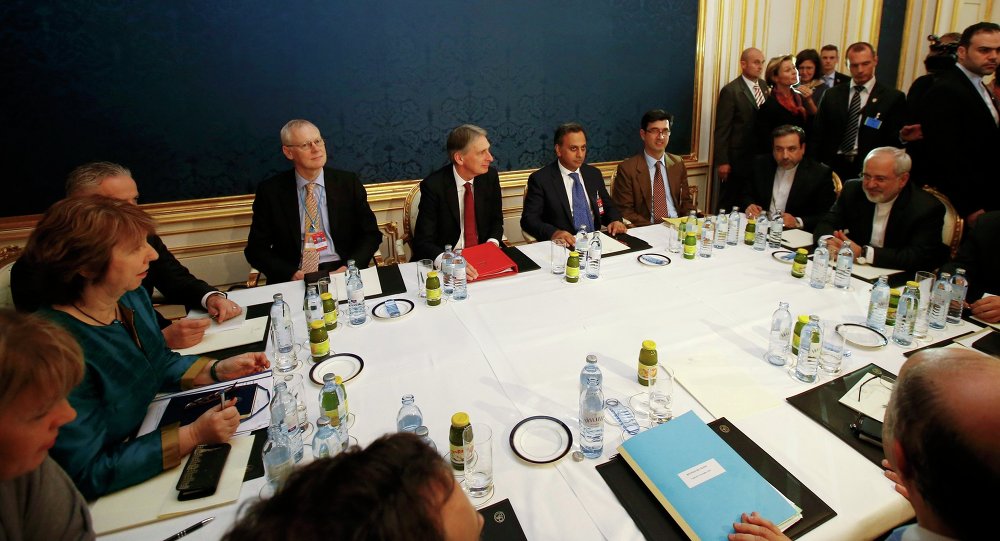 BEIJING, Nov. 24 (Xinhua) -- As hopes for a comprehensive deal on the Iranian nuclear issue by Monday are fading due to gaps on key aspects among the related parties, negotiations, instead of threat of sanctions, still remain the only way out of the standoff.
BEIJING, Nov. 24 (Xinhua) -- As hopes for a comprehensive deal on the Iranian nuclear issue by Monday are fading due to gaps on key aspects among the related parties, negotiations, instead of threat of sanctions, still remain the only way out of the standoff.Iran and six world powers -- Britain, China, France, Germany, Russia and the United States -- began their latest round of talks in the Austrian capital of Vienna Tuesday.
It is hoped that a comprehensive deal would be reached by Monday that would ensure the peaceful nature of Tehran's nuclear program, while, in return, Western states would phase out sanctions that have severely damaged the gulf nation's oil-dependent economy.
However, divergence remains on key issues such as the size and scope of Iran's nuclear program, particularly the number of centrifuges Iran will be allowed to operate, and the incentives Iran will get in return for its possible concessions.
While a comprehensive deal seems impossible by Monday, it is not likely that the talks will break down.
First, a breakdown is not in the interests of the parties. A restart of the Iranian nuclear program will cause regional instability and prolonged sanctions will worsen Iran's economy given the ever declining oil prices.
Second, the Obama administration and the Iranian government led by moderate President Hassan Rouhani have tried to improve relations in the past year. Failure of the Vienna talks will be a blow to both governments.
It is possible that the nuclear talks will result in a "political agreement" on the Iranian nuclear issue instead of a comprehensive deal.
In the past week, the United States and Iran have been making joint efforts to reach such an agreement, which could focus on the consensus reached in the talks while making commitments to solving pending issues in the future.
If such an agreement is reached, efforts of the concerned parties in the nuclear talks will not be wasted and the result might be accepted by the hawkish forces in the United States and Iran. Such an agreement will pave the way for the extension of the talks.
In fact, such an agreement is possible as Iran and Western powers have made progress on some thorny issues through diplomacy in the past year.
U.S. chief nuclear negotiator Wendy Sherman, under secretary of state for political affairs, said in October that "impressive progress" has been made during past talks on issues "that originally seemed intractable," despite the fact that differences over the size and scope of Iran's uranium enrichment capacity kept drawing more attention.
Moreover, if there is no political agreement, extending the Geneva talks again is also possible.
As long as the talks continue, it is hopeful that the concerned parties will find a way out. None of the parties are willing to take the consequences of failed talks.
It is highly advisable that all parties in the Iranian nuclear talks adhere to consensus, close the rift and resolve the key issues.
In this process, China can play a constructive role in the negotiations by promoting communications among the related parties, push for a comprehensive deal at an early date, and make its due contributions to safeguarding peace and stability in the Middle East.
By Xinhua
The Iran Project is not responsible for the content of quoted articles.










